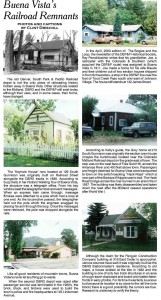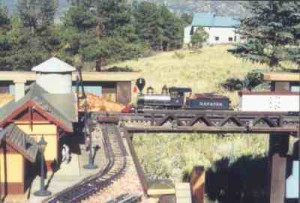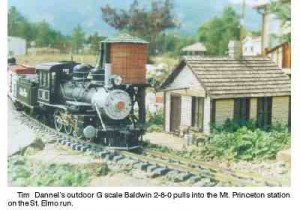Review by Ed Quillen
Southern Colorado – January 2004 – Colorado Central Magazine
Warriors, Widows, and Orphans And Other Tales of Southern Colorado
by Kay Beth Faris-Avery
Published in 2003 by Western Reflections
ISBN 1-890437-77-8
THIS IS A COLLECTION of short stories based on characters from the past; many of the stories are told in their voices, as with Clarissa Pike recounting some adventures of her soldier husband Zebulon Montgomery Pike as he explored this territory in 1806-07. Many of the stories are engaging and entertaining as they add flesh and action to the dry bones of history.
But if you’re a history buff, you’ll also find many of these 18 tales annoying, because as historical fiction, their history is all too often a fiction.
That irked me before I finished the first story, an account of Juan Bautista de Anza’s 1779 campaign, “from the perspective of a Native American in 1980.” As the story develops, the narrator is of Ute heritage, and depicts Anza as an enemy of all Indians, not just the Comanche he sought on that 1779 campaign.
In actual fact, Anza was conducting the campaign to protect his allies — the Pueblos and the Utes — from Comanche raids. The Utes hated the Comanche (indeed, Comanche means “enemy” or “those who always fight us” in Ute), and when Anza’s army encountered a Ute party near present Saguache, the Utes volunteered to join the campaign against the Comanche.
A Ute narrator would presumably know that, since he knew other details of the campaign.
If that were the only irksome misstatement of history in these stories, you could concede that no one is perfect, and we all get something wrong from time to time. But the pattern continues; just about every story has some glaring error that disrupts one’s reading.
Clarissa Pike’s recounting of her late husband’s Colorado travels misses entirely his journey from Cañon City northwest into South Park and across Trout Creek Pass to the upper Arkansas, where there’s even a roadside historic marker noting the first Christmas celebration in Colorado. By this account, Pike was never there.
AFTER THE WILD GOOSE CHASE that took Pike back to the east side of the Royal Gorge where he had started, he headed southwest to the Wet Mountain Valley, then over Medano Pass. The story states that “for two weeks he passed through rows of sand dunes,” when Pike’s journal recounts that he spent only one day near the Great Sand Dunes, and that he did not go through the dunes, but “left the sandy desert to our right, and kept down between it and the mountain.”
Another story, in the voice of mountain man James Beckwourth, concerns the Sand Creek Massacre. The narrator signed up with the Third Colorado Volunteers in 1864 under Col. John Milton Chivington, “even though I did not trust his sugary compliments and fine Southern manners.”
Chivington was a staunch and outspoken abolitionist, and he was born and raised in Lebanon, Ohio — hardly a place to acquire “fine Southern manners.”
In one tale, about Charles Autobees (a Colorado pioneer who deserves more attention than he gets), the narrator says that James Butler “Wild Bill” Hickok “might have been a good dentist and notorious gunfighter in his day.” Hickok was mostly a freighter when he wasn’t a hired gun, and he was never a dentist — dentistry was Doc Holliday’s day job.
This list of annoyances could continue indefinitely, as the flaws range from historic inaccuracies and internal inconsistencies to anachronisms and geographic errors. This book really needed a good editor to spot these problems before it emerged for public consumption.
It’s a pity that didn’t happen. Author Kay Beth Faris-Avery picked a good theme and location (all the stories in some way connect with Huerfano County), and she takes a creative approach, using a different narrator for each story. She includes people like Autobees who deserve more attention than they get, and also addresses the racism and poverty of this region’s history, topics that many authors would avoid. In general, the writing is smooth and competent.
But the errors are so distracting that I find it impossible to recommend these tales. Anza, Pike, Beckwourth, Hickok, the Utes, the miners, the ranchers, et al — and those of us who are interested in their lives — deserve a more reliable and honest account.



